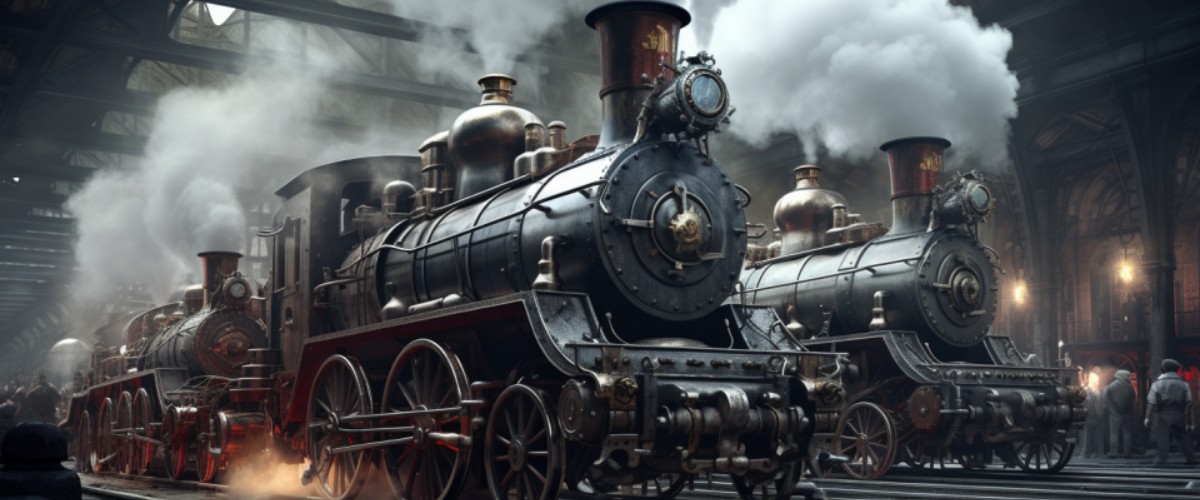Embarking upon an era that remarkably transformed civilisation, the Industrial Revolution laid the foundational stones of modern industrial society and influenced almost every aspect of daily life. This notable period in history reshaped manufacturing and brought comprehensive modifications to the socio-economic and cultural conditions of the times.
Background
- Prelude to Change
- The agrarian revolution and the resultant surplus in food production.
- An increase in population, providing both a labour force and larger consumer market.
- Accumulation of capital for investment, emerging from agrarian changes and commerce.
- Key Players
- James Watt: Invented the steam engine, catalysing mechanised production.
- Richard Arkwright: Creator of the water frame, aiding the evolution of textile manufacturing.
- George Stephenson: Engineered the locomotive, facilitating transformative changes in transport.
Major Happenings
- Mechanisation of Industries
- Transition from hand production methods to machines.
- Steam engines, spinning jennies, and power looms optimising production.
- Advancements in Technology
- The development of new machinery and technology, particularly in textile manufacturing.
- Growth of factory systems and establishment of large-scale industrial establishments.
- Transportation Revolution
- Expansion of railway networks, providing fast and cheap movement of goods and people.
- Inception and enhancement of canals and improved roadways.
- Urbanisation
- Significant shifts of population from rural areas to emerging industrial towns and cities.
Immediate Outcomes
- Societal Transformation
- Massive shifts in work patterns and urbanisation.
- Elevation of the industrial bourgeoisie and the oppression of the working class.
- Economic Ramifications
- Spurt in manufacturing sectors, giving impetus to economic growth.
- The creation of new domestic and international trade routes.
- Environmental Consequences
- Rampant deforestation and excessive coal mining influencing landscapes and triggering ecological concerns.
Long-term Impact
- Global Influence
- Shaping economies by propelling technological advancements worldwide.
- Enabling nations to accumulate wealth and engendering subsequent industrial revolutions globally.
- Social and Political Implications
- Giving rise to significant political and social movements, advocating for workers’ rights and better living conditions.
- Infusing ideological shifts like capitalism, influencing global economies and politics.
- Technological and Scientific Progress
- Paving the way for further technological innovations and scientific discoveries.
- Steering humanity towards an era of unparalleled development in various fields like engineering, chemistry, and metallurgy.
Conclusion
Woven into the fabric of global progression, the Industrial Revolution not only reconstructed the economic capabilities of nations but also sewed seeds of technological advancement that burgeoned into the future we inhabit today. This potent period moulded the paradigms of societal structures, economic systems, and global interactions, solidifying its stature as a cornerstone in human history. As we traverse through the epoch of digital revolution today, the perennial relevance of its predecessor – the Industrial Revolution – remains evident in our mechanised industries, scientific explorations, and the inexorable spirit of innovation that continues to drive human progression into uncharted territories.








